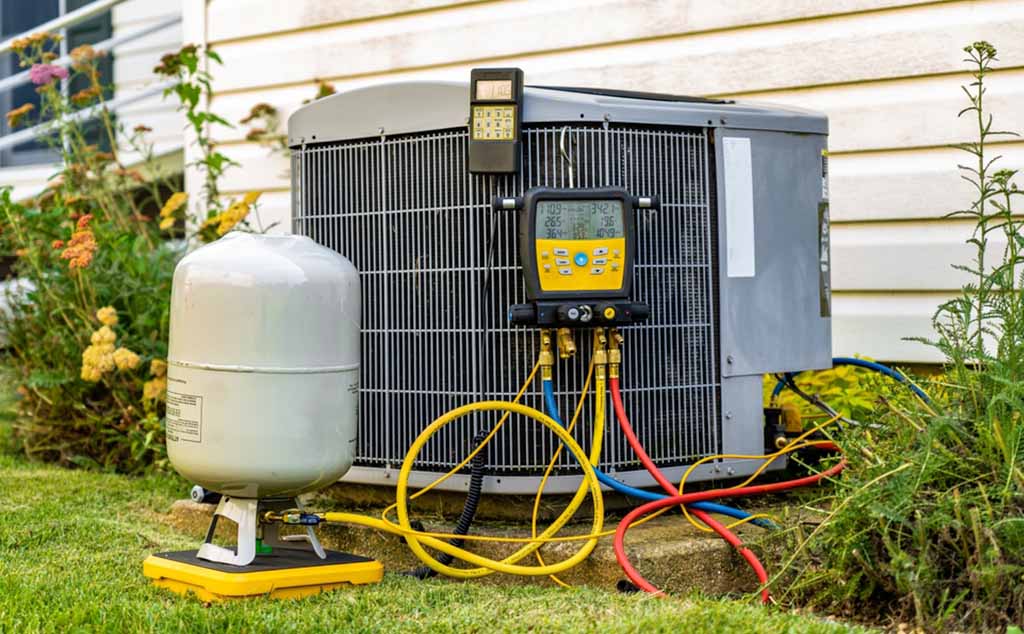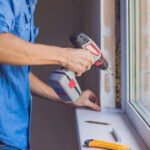
HVAC Maintenance: A Comprehensive Guide to Saving Money on Repairs
Heating, ventilation, and air conditioning (HVAC) systems play a pivotal role in maintaining a comfortable and healthy indoor environment. However, the prospect of costly repairs can be a source of anxiety for homeowners. The good news is that a proactive approach to HVAC maintenance can significantly reduce the likelihood of major breakdowns and their associated expenses. In this comprehensive guide, we’ll explore practical strategies to save money on HVAC repairs, ensuring your system operates efficiently year-round without draining your budget.
1. Regular Maintenance: The Key to Longevity
Routine maintenance is the cornerstone of HVAC cost savings. Regularly servicing your system helps identify and address minor issues before they escalate into major problems. Here’s a breakdown of essential maintenance tasks:
- Air Filter Replacement: Changing the air filter is a simple yet crucial task. A clean filter promotes optimal airflow, reduces strain on the system, and enhances overall efficiency. Aim to replace filters every 1-3 months, depending on usage and filter type.
- Coil Cleaning: Dust and debris accumulate on the evaporator and condenser coils over time, hindering heat exchange. Regularly cleaning these coils improves efficiency and prevents potential malfunctions.
- Check Refrigerant Levels: Low refrigerant levels can lead to system inefficiency and, in severe cases, damage the compressor. Regularly check and, if necessary, recharge refrigerant levels according to manufacturer specifications.
- Inspect Ductwork: Leaks or blockages in the ductwork can compromise airflow, reducing system efficiency. Periodically inspect and seal any leaks to maintain optimal performance.
- Calibrate Thermostats: Ensure your thermostats are calibrated correctly to accurately reflect indoor temperature preferences. This prevents unnecessary system cycling, optimizing energy consumption.
2. DIY Maintenance: Empowering Homeowners
While professional maintenance is crucial, there are several DIY tasks that homeowners can undertake to keep their HVAC systems in top condition:
- Clearing Debris: Regularly clear debris, leaves, and vegetation from around the outdoor unit. A clear space ensures unrestricted airflow and efficient heat exchange.
- Condensate Line Cleaning: The condensate line can become clogged over time, leading to water damage and potential system malfunctions. Periodically flush the line with a mixture of water and bleach to prevent blockages.
- Inspect Insulation: Proper insulation in your home reduces the workload on your HVAC system. Check and update insulation in attics, crawl spaces, and walls to maintain consistent indoor temperatures.
3. Professional Maintenance: Investing in Efficiency
While homeowners can handle some maintenance tasks, scheduling regular professional inspections is essential for comprehensive system care. Professional HVAC technicians can:
- Identify and Address Issues Early: Trained technicians can identify potential problems before they escalate, saving homeowners from costly repairs down the line.
- Optimize System Performance: Professionals can fine-tune your HVAC system for optimal performance, ensuring it operates at peak efficiency and minimizing energy consumption.
- Extend System Lifespan: Regular professional maintenance significantly extends the lifespan of HVAC systems, providing a higher return on the initial investment.
4. Energy-Efficient Upgrades: A Smart Investment
Upgrading to energy-efficient components can result in long-term cost savings. Consider the following upgrades:
- Programmable Thermostats: Installing programmable thermostats allows you to set temperature schedules, optimizing energy use and reducing unnecessary heating or cooling when not needed.
- High-Efficiency Filters: Invest in high-efficiency filters that trap more particles, keeping the system clean and reducing wear and tear.
- Variable Speed Motors: Variable speed motors adjust to the heating or cooling demands of your home, providing consistent comfort and minimizing energy consumption.
5. Addressing Issues Promptly: Preventing Escalation
Promptly addressing any issues that arise is a fundamental aspect of saving money on HVAC repairs. Ignoring warning signs can lead to more extensive damage, resulting in higher repair costs. Be vigilant for signs such as:
- Unusual Noises: Strange sounds like banging, hissing, or squealing may indicate issues with the fan, motor, or other components.
- Inconsistent Heating or Cooling: If certain rooms are consistently too hot or too cold, there may be issues with ductwork, insulation, or the HVAC system itself.
- Increased Energy Bills: A sudden spike in energy bills may signal inefficiencies or malfunctions within the HVAC system.
- Frequent Cycling: Short cycling, where the system turns on and off frequently, can indicate issues with thermostats, sensors, or other components.
- Comparison Shopping for Repairs: Knowledge is Power
In the event that repairs are necessary, obtaining multiple quotes from reputable HVAC contractors empowers homeowners to make informed decisions. Consider the following when seeking repair services: - Get Multiple Quotes: Reach out to several HVAC professionals to obtain quotes for the repair. This allows you to compare prices and ensure you’re getting a fair deal.
- Check Reviews and Credentials: Research the reputation and credentials of HVAC contractors. Online reviews and testimonials provide insights into the quality of their work.
- Ask for Warranty Information: Inquire about warranties for parts and labor. A reputable contractor should provide warranty coverage for their work and any replacement parts.
- Unusual Noises: Strange sounds like banging, hissing, or squealing may indicate issues with the fan, motor, or other components.
A Holistic Approach to Savings
Saving money on HVAC repairs requires a holistic approach that combines regular maintenance, DIY care, professional inspections, energy-efficient upgrades, and prompt attention to emerging issues. By investing time and resources into proactive HVAC care, homeowners not only reduce the risk of costly repairs but also ensure their systems operate efficiently for years to come. Remember, a well-maintained HVAC system not only saves money but contributes to a comfortable and healthy home environment.



